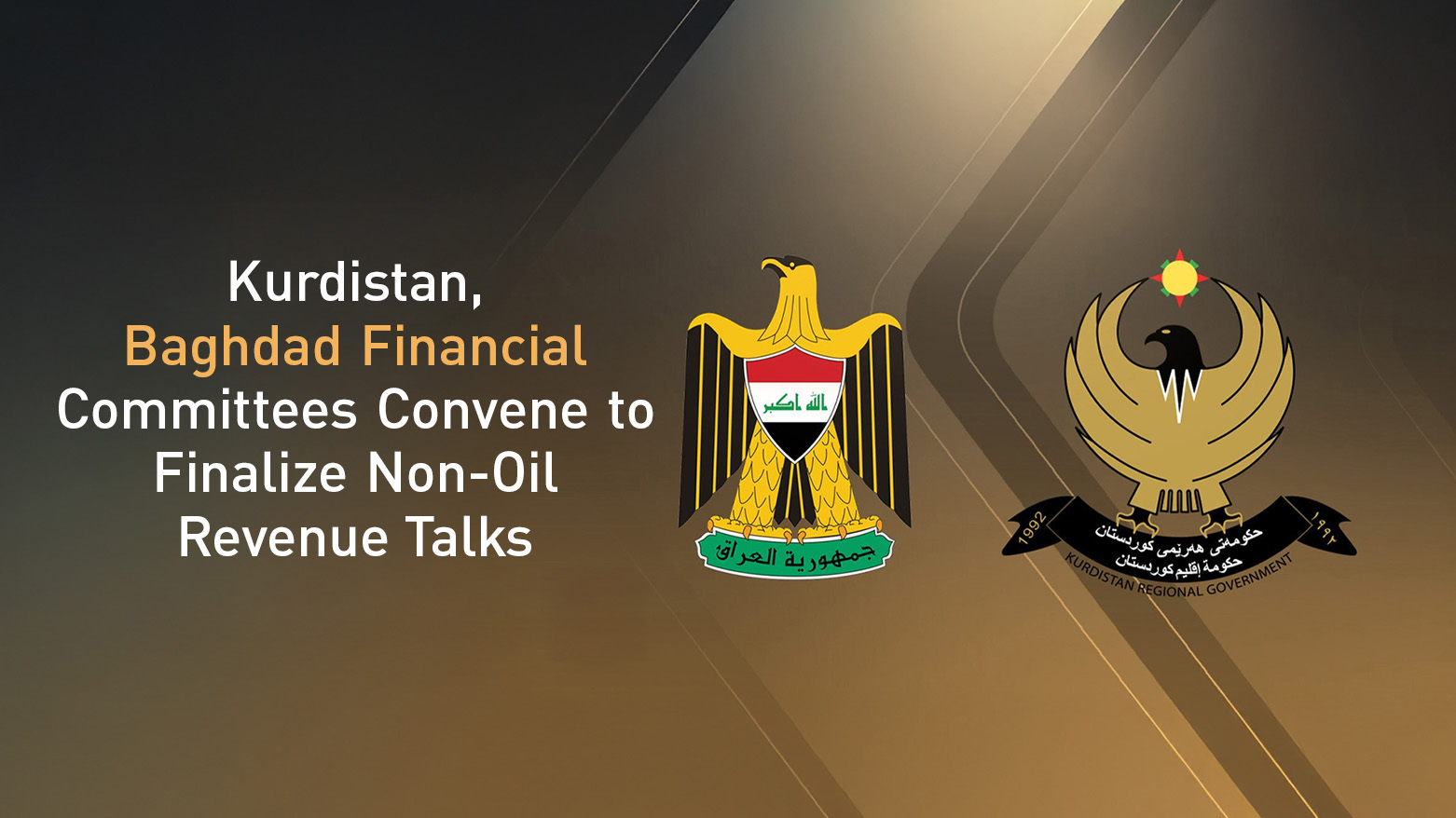Kurdistan, Baghdad Financial Committees Convene to Finalize Non-Oil Revenue Talks
A source from Iraq’s Ministry of Finance confirmed to Kurdistan24’s Baghdad correspondent, Dilan Barzan, that the aim of the meeting is to complete the work of the committee formed on non-oil revenues, which must be completed by August 10, a deadline set by the Iraqi cabinet.

ERBIL (Kurdistan24) — A delegation from the Kurdistan Region’s Ministry of Finance arrived in Baghdad on Wednesday to hold key discussions with their counterparts from the Iraqi federal government, aimed at resolving long-standing disputes over non-oil revenues and public employee salaries.
A source from Iraq’s Ministry of Finance confirmed to Kurdistan24’s Baghdad correspondent, Dilan Barzan, that the aim of the meeting is to complete the work of the committee formed on non-oil revenues, which must be completed by August 10, a deadline set by the Iraqi cabinet.
This round of talks follows Tuesday’s cabinet meeting, chaired by Iraqi Prime Minister Mohammed Shia’ al-Sudani, during which the ongoing salary crisis in the Kurdistan Region and the Baghdad-Erbil oil agreement were discussed. Iraqi Oil Minister Hayyan Abdulghani briefed the cabinet, stating that oil production in the Kurdistan Region had climbed back to approximately 130,000 barrels per day, of which 80,000 barrels are to be delivered to SOMO for export, while the remaining 50,000 barrels will be used domestically in the Region.
However, according to Kurdistan24's correspondent in Baghdad, the Federal Finance Minister Tayf Sami stated that the audit committee had not yet submitted a final report on Kurdistan’s non-oil revenues. Due to this delay, Prime Minister Sudani decided to extend the committee’s mandate by another week, postponing any final decision on salary disbursement until the report is complete.
These developments come in the context of the July 17, 2025, Iraqi cabinet decision that ratified a temporary agreement with the KRG. Under that deal, the KRG is to supply 230,000 barrels of oil per day and 120 billion IQD monthly from the non-oil revenues to the federal government, while Baghdad will cover the salaries for May and the upcoming months for Kurdistan Region Government civil servants.
Despite the optimistic tone of the meetings, many in the Kurdistan Region remain skeptical of Baghdad’s commitment. The federal government’s continued control over oil revenues and delays in salary payments are widely viewed as political leverage tactics rather than genuine efforts at power-sharing, further straining the already fragile relationship between Erbil and Baghdad.
